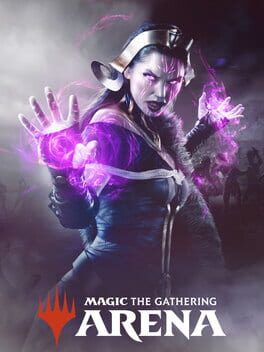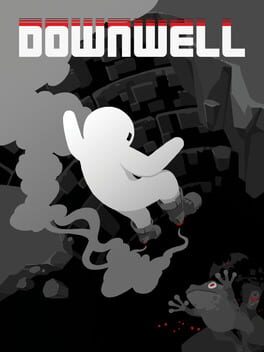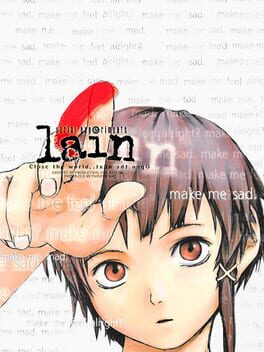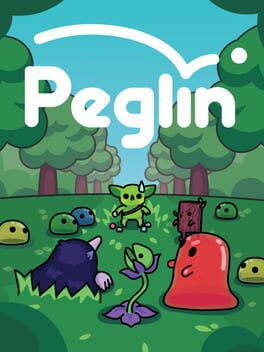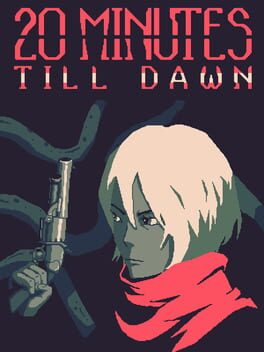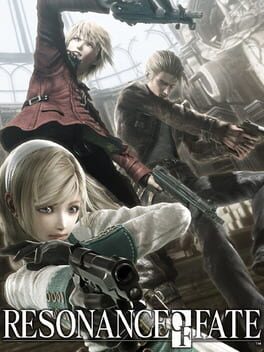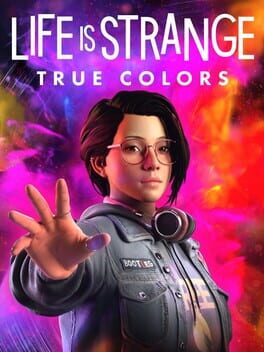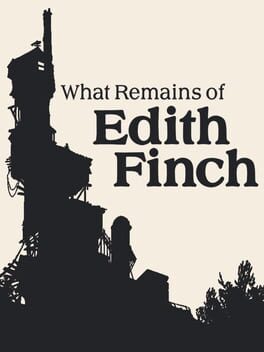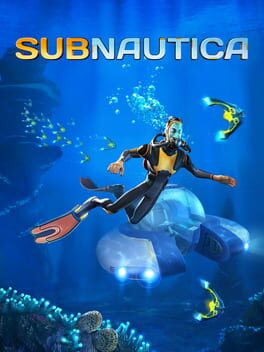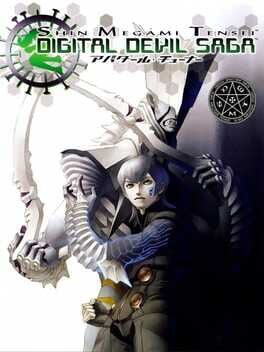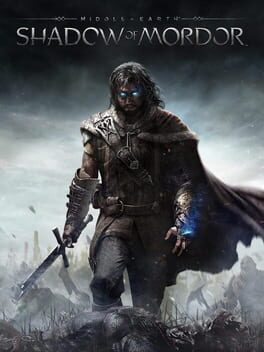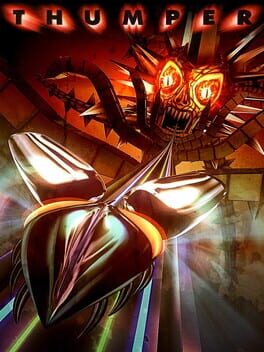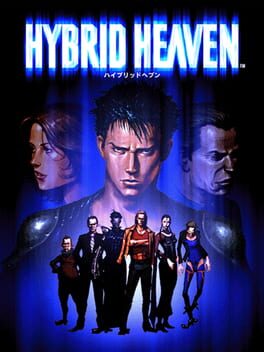epiglottis
2015
Database narrative as moe personification. Impressive atmosphere and structural sensibilities, but the game's voyeuristic treatment of Lain is deeply suspect, especially given that this has one of the cruelest endings I've seen in basically anything. Doesn't help that whoever designed the UI is a psychopath.
2022
2022
Nearly every mechanical system in this game is plagued with balance issues. I have no idea what they were thinking with the Runes. There is something to be said, of course, for the joy of playing a video game with a suboptimal build, but even as a low-tier warrior I don't see how the appeal of this subgenre meshes well with deliberately handicapping yourself. Isn't the musou-style Ye Shall Be As Gods mass violence the core loop's hook here?
Still good for a few hours' worth of cheap dopamine and at least more aesthetically palatable than Vampire Survivors.
Still good for a few hours' worth of cheap dopamine and at least more aesthetically palatable than Vampire Survivors.
2022
The careless copy-editing sets a poor first impression. Someone needs to teach this poor writer and/or editor how to use a comma correctly. The dice mechanic is seductive, though, and even though it becomes so easily min-maxed as to be irrelevant in the last quarter, it gives the proceedings urgency where they otherwise wouldn't have any. I found myself compelled, though never quite surprised and certainly not moved; the game is totally upfront with its themes so there aren't exactly many surprises.
I would show this to a casual gamer who has expressed tentative interest in visual novels.
I would show this to a casual gamer who has expressed tentative interest in visual novels.
2010
Incredibly bold to make a game about, in part, music's ability to foster emotional healing and communal growth, and then put all of your chips on Kings of Leon.
Awful ending! It really betrays how undernourished a lot of the characters and subplots are. The game essentially expresses its attitude toward the sum of your choices in Chapter 5's town council meeting and whether or not you receive a council member's support. Four binary outcomes, themselves only supported by one or at most two choices? I was especially disappointed at the handling of Eleanor's subplot, where it falls upon the protagonist to make an uneasy choice about an elderly woman's livelihood and she never gets the chance to justify or even discuss it after the fact.
The romance is its other big payoff, but that's just window dressing, lacking in dynamism and meant to distract you from how static the actual storyline is. I flirted hard with Ryan at first, pivoted to Steph during Chapter 3, then ultimately chose Ryan and never heard a word about it from Steph. You can pretty much just choose whoever, and by extension, whatever ending you want, with not even a comment on your chaotic behavior.
The game has its virtues. There's a solid thematic core around accountability and guilt, even though none of the endings address it meaningfully, and Alex is a fairly compelling protagonist. But there's no nuance between the lines, nothing that makes it feel like the game is actually paying attention to the leads you chase and the interests you delve deeper on. The empathy so painstakingly examined here is not extended to the player or their attempts to create a unique path through the world.
Awful ending! It really betrays how undernourished a lot of the characters and subplots are. The game essentially expresses its attitude toward the sum of your choices in Chapter 5's town council meeting and whether or not you receive a council member's support. Four binary outcomes, themselves only supported by one or at most two choices? I was especially disappointed at the handling of Eleanor's subplot, where it falls upon the protagonist to make an uneasy choice about an elderly woman's livelihood and she never gets the chance to justify or even discuss it after the fact.
The romance is its other big payoff, but that's just window dressing, lacking in dynamism and meant to distract you from how static the actual storyline is. I flirted hard with Ryan at first, pivoted to Steph during Chapter 3, then ultimately chose Ryan and never heard a word about it from Steph. You can pretty much just choose whoever, and by extension, whatever ending you want, with not even a comment on your chaotic behavior.
The game has its virtues. There's a solid thematic core around accountability and guilt, even though none of the endings address it meaningfully, and Alex is a fairly compelling protagonist. But there's no nuance between the lines, nothing that makes it feel like the game is actually paying attention to the leads you chase and the interests you delve deeper on. The empathy so painstakingly examined here is not extended to the player or their attempts to create a unique path through the world.
2014
I admit minimal experience with survival and builder games, but for me neither subgenre has yet surpassed Subnautica. In its own quiet way, it's a game about the passage of time and how time changes in relation to the space you inhabit - refer to the game's final post-credits line and how it contrasts to the unforced rhythmic flow of life on the alien planet, defined solely by your basic biological needs and the day-night cycle. Aggressively and intrusively buggy but a lovely, thoughtful experience.
Super-generic AAA runoff that leans heavily on its IP to trick players into thinking that it has a single interesting idea under the hood. Good for about fifteen hours of lizard brain skullcrushing, but unlike most games in this industrial model, the sense of regret and of time wasted sets in before you're even half done. A waste of a hundred million dollars and work-hours for a game destined to be forgotten under the shadow of a shiny new model three years later.
2016
A raw and kinetic experience that never seems to reach its full potential. The game's refusal to really differentiate its chapters tonally or aesthetically is a big letdown, and gameplay-wise there's not much meat on the bone to begin with; it feels like an incomplete vision. I did enjoy the "last boss," who forces you to reconceive of how you've been using your senses to guide you through the last six hours of gameplay.
1999
Today I am pouring one out for Konami Computer Entertainment Osaka, who produced four flawed but unique N64 titles - this, the Goemon games, and Deadly Arts - before being forced to handle their parent company's IP shovelware for the next six years. Hybrid Heaven was born from KCEO's hubristic notion that they could make a better game than Metal Gear Solid, and though there's no need to argue over who won that contest, it still proves that spite can encourage surprising ambition.
The game is frequently as stilted as it is expressive. Its only unqualified success is its industrial-adjacent soundtrack, which refines the dynamic music changes KCEO explored in Goemon to give each area a mounting sense of unearthliness. It's a great complement to the lush colors and alien geometry of the underground facility, but the game is so linear, and so hemmed in by its awkward camera, that it's hard to explore the environments and indulge in the experience on your own terms. The story is an explosive B-movie yarn that seems like it has something to say, but can't clearly express any ideas more sophisticated than "clone inferiority complex." MGS this ain't.
The combat system, first off, is inherently funny because this facility is full of freakish animal-alien-human chimeras and all of them fight like mixed martial artists. Playing with spacing and timing is fun and there are some interesting risk-reward elements, but the systems rarely encourage experimentation once you've found your winning handful of moves. Why would you ever use punches over kicks? I found the game too easy on Normal but admit that any of the higher difficulties would probably have been a drawn-out slog.
Certainly not a perfect game but ripe for rediscovery. There must be at least a few MMA/JRPG/conspiracy theory enthusiasts who have a Hybrid Heaven-shaped hole in their hearts.
The game is frequently as stilted as it is expressive. Its only unqualified success is its industrial-adjacent soundtrack, which refines the dynamic music changes KCEO explored in Goemon to give each area a mounting sense of unearthliness. It's a great complement to the lush colors and alien geometry of the underground facility, but the game is so linear, and so hemmed in by its awkward camera, that it's hard to explore the environments and indulge in the experience on your own terms. The story is an explosive B-movie yarn that seems like it has something to say, but can't clearly express any ideas more sophisticated than "clone inferiority complex." MGS this ain't.
The combat system, first off, is inherently funny because this facility is full of freakish animal-alien-human chimeras and all of them fight like mixed martial artists. Playing with spacing and timing is fun and there are some interesting risk-reward elements, but the systems rarely encourage experimentation once you've found your winning handful of moves. Why would you ever use punches over kicks? I found the game too easy on Normal but admit that any of the higher difficulties would probably have been a drawn-out slog.
Certainly not a perfect game but ripe for rediscovery. There must be at least a few MMA/JRPG/conspiracy theory enthusiasts who have a Hybrid Heaven-shaped hole in their hearts.
2021
Great dithering, beautiful dithering. One of the most artistically rich solo dev projects I've ever played. I will reserve judgment on the plot and themes, knowing that there are future titles to be released, but I think the pieces are in place to make a really strong statement about cultural transference as a kind of occultism if Sonoshee sticks the landing.
